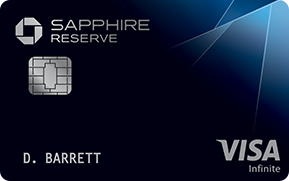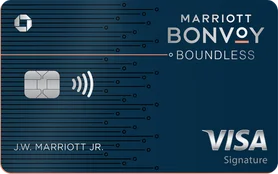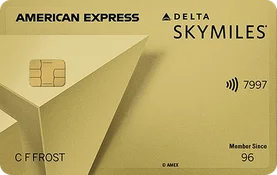Building Credits for New Immigrants: A Path to Financial Empowerment
by Kayode

Welcome to the first chapter of your new life as a migrant in a foreign land! As a new immigrant, you’re probably experiencing a mix of emotions, from excitement and anticipation to culture shock and uncertainty. Amidst all the new experiences, it’s essential to establish a strong financial foundation, and one crucial aspect of that is building your credit.In this post, we’ll guide you through building credits for new immigrants and set you on a path to financial empowerment.

A Beginner’s Guide to Points and Miles
Understanding Credits and Its Importance:
Credit is the financial lifeline that allows you to borrow money for various purposes and pay it back over time. Your credit score, a numerical representation of your creditworthiness, determines your ability to secure loans, rent an apartment, or even get a cellphone plan. Building credits for new immigrants is a vital step towards achieving financial independence and realizing your dreams in your new homeland.

Related: Adding an Authorized User on your Credit Card
The Excitement and Culture Shock of New Migrants:
As you embark on this exciting journey, you’ll be thrilled by the new experiences, diverse traditions, and extraordinary landscapes that await you. However, the process of settling into a foreign land can also bring about culture shock – a feeling of disorientation due to unfamiliar customs and practices. Embracing this cultural transition is essential while simultaneously focusing on your financial well-being.
Tools to Monitor Your Credit Score:
To begin your credit-building journey, it’s crucial to monitor your credit score and stay informed about any changes. Tools like Credit Karma, Credit Sesame, Experian, and many financial institutions offer free credit monitoring services. These platforms provide you with regular updates on your credit score and credit report, empowering you to make informed decisions about your financial health.
Follow our luxurious trips on Instagram
Credit Cards for Beginners:
For new immigrants looking to build credit, secured credit cards are an excellent starting point. These cards require a security deposit, which becomes your credit limit. Secured credit cards are more accessible to obtain since the risk for the lender is minimized. Responsible usage of a secured credit card can gradually improve your credit score over time.
Additionally, consider exploring credit cards designed specifically for individuals with limited or no credit history. The Discover it Secured Card, Capital One Platinum Credit Card are some of the popular choices. These cards often come with low credit limits and straightforward terms, making them suitable for beginners.
Related: The 5/24 Rules of Credit Cards

Tips for Building Credit Responsibly:
- Pay Bills on Time: Timely payment of your bills is the most crucial factor in building and maintaining a positive credit history. Payment history accounts for a significant portion of your credit score, so consistently paying your bills on or before the due date will have a positive impact. This includes credit card bills, rent, utilities, and any other loans or debts you may have. Set up reminders or automatic payments to ensure you never miss a due date, as even one late payment can harm your credit score.
- Keep Credit Utilization Low: Credit utilization refers to the percentage of your available credit that you are currently using. To build credit responsibly, aim to keep your credit utilization below 30%, ideally below 10%. For example, if you have a credit card with a $1,000 limit, try to use no more than $300 at any given time. It’s even better if you can keep your credit utilization rate below 10%. High credit utilization can signal to creditors that you may be relying too heavily on credit, which can negatively impact your credit score. Regularly paying off your credit card balances in full or keeping them low will demonstrate responsible credit usage.
- Avoid Opening Multiple Accounts at Once: While it’s essential to have a mix of credit types, avoid the temptation to open multiple credit accounts simultaneously. Opening several accounts within a short period can be seen as a sign of financial instability and may lower your credit score. Additionally, each time you apply for credit, a hard inquiry is made on your credit report, which can slightly lower your score. Instead, focus on building a strong credit history with one or two credit cards and managing them responsibly.
- Mix Credit Types: Having a mix of credit types can positively influence your credit score. Credit bureaus assess your ability to handle different types of credit responsibly. This includes revolving credit, like credit cards, and installment credit, like auto loans or personal loans. If you have only one type of credit on your report, consider diversifying your credit mix over time. However, avoid taking on unnecessary debt simply to add a new credit type. Only do so if it aligns with your financial goals and you can manage it responsibly.
Remember that building credit is a gradual process, and patience is key. It takes time to establish a robust credit history and improve your credit score. Monitor your credit regularly using the tools mentioned earlier to stay on top of your progress and address any errors on your credit report promptly.
In conclusion:
Responsible credit management is essential for new immigrants aiming to build a solid financial foundation in their new homeland. By consistently paying bills on time, keeping credit utilization low, avoiding opening multiple accounts at once, and having a mix of credit types, you can gradually build a positive credit history. As you progress on your credit-building journey, you’ll find yourself better positioned to achieve financial goals and embrace new opportunities in your adopted country.

Nigeria-born, California-based.
Kayode currently holds higher status on multiple airlines and hotel programs. He has visited 4 continents, 30 countries, and 35 of the 50 US states.
He began his adventure journey after selling his first cellphone ever, and used the money to apply for his first passport. He said to himself, “I’d rather have a passport than a cellphone”. And since then, he has been globetrotting.




